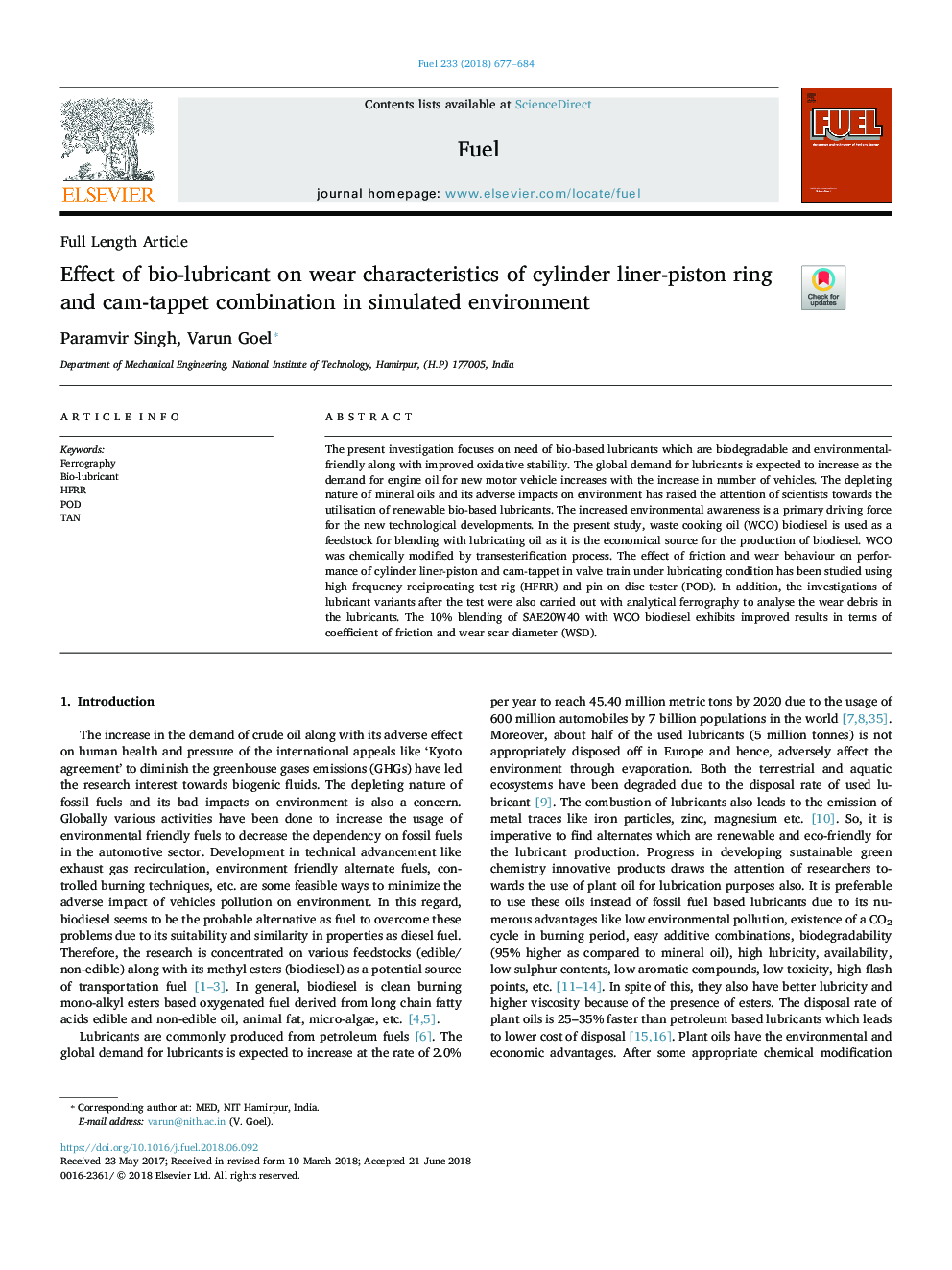| Article ID | Journal | Published Year | Pages | File Type |
|---|---|---|---|---|
| 6630292 | Fuel | 2018 | 8 Pages |
Abstract
The present investigation focuses on need of bio-based lubricants which are biodegradable and environmental-friendly along with improved oxidative stability. The global demand for lubricants is expected to increase as the demand for engine oil for new motor vehicle increases with the increase in number of vehicles. The depleting nature of mineral oils and its adverse impacts on environment has raised the attention of scientists towards the utilisation of renewable bio-based lubricants. The increased environmental awareness is a primary driving force for the new technological developments. In the present study, waste cooking oil (WCO) biodiesel is used as a feedstock for blending with lubricating oil as it is the economical source for the production of biodiesel. WCO was chemically modified by transesterification process. The effect of friction and wear behaviour on performance of cylinder liner-piston and cam-tappet in valve train under lubricating condition has been studied using high frequency reciprocating test rig (HFRR) and pin on disc tester (POD). In addition, the investigations of lubricant variants after the test were also carried out with analytical ferrography to analyse the wear debris in the lubricants. The 10% blending of SAE20W40 with WCO biodiesel exhibits improved results in terms of coefficient of friction and wear scar diameter (WSD).
Keywords
Related Topics
Physical Sciences and Engineering
Chemical Engineering
Chemical Engineering (General)
Authors
Paramvir Singh, Varun Goel,
